‘Sisters’ in Mumbai’s hospitals have male company as more men choose to take up nursing, once considered the exclusive domain of women. How are patients, hospital managements and female colleagues reacting? mid-day finds out

Mario Kolambel, 35, is Fortis Hospital Mulund’s Nurse Educator-Cum-Administrator. He chose to follow in his mother’s footsteps, who spent 29 years of her life being a nurse until she retired in 2020. Pic/Satej Shinde
In the primitive period, Mother Nature considered woman as an instinctive nurse,” states the Historical Trajectory of Men in Nursing in India, a study published by Sage Journals in May 2020 by Sathish Kumar Jayapal and Judie Arulappan.
ADVERTISEMENT
The primitive belief clearly persisted right until the 21st century, if Mario Kolambel’s experience is anything to go by. When the Malad resident, who works at Fortis Hospital in Mulund as Nurse Educator cum Coordinator, enrolled for a nursing course at the MGM New Bombay College of Nursing in 2009, he was the only man in a batch of 30 female students.
“[But] It wasn’t really as awkward as I’d thought it would be,” he tells mid-day. “Girls are nurturing by nature, so they took it upon themselves to look out for me. I was put up in a hostel, and they’d get extra food for me. They also helped me with academics when I once faced a medical problem.”
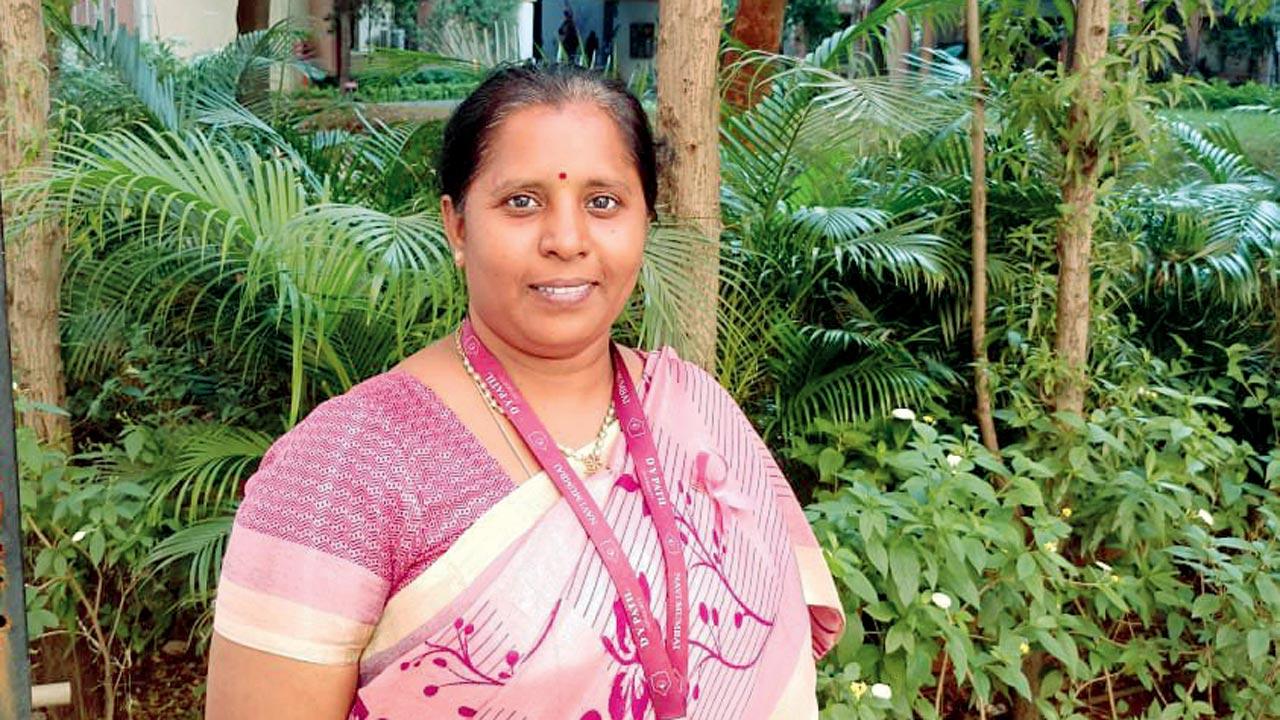 Deepa Reddy
Deepa Reddy
Today, he adds, he sees more men enter nursing. But the change has been slow. This, despite the fact that the entry of men in nursing was approved by the Indian government back when the Madras Presidency existed. The Sage Journal study notes that in a government order dated October 27, 1938 (Ministry of Local and Self-Government, Department of Public Health, 1938), the organisational committee constituted by Major Surgeon General NM Wilson reported the matters pertaining to the training of male nurses.
“The first batch of male nursing students training was permitted from January 1, 1939. In the G.O. No. 156 PH dated January 17, 1939, the organisational committee requested to postpone the recruitment of the male nursing students to July 1, 1939, as the recruitment process would take more time. The request was agreed, and the recruitment of male nursing students was postponed to July 1939 (Wilson, 1939),” the study states.
Of the total 7,260 students who enrolled for the state government’s BSc Nursing course this year, 2,060 were male. This accounts for 30 per cent of the seats.
Private institutes, too, are seeing a similar rise. Deepa Reddy, head of the DY Patil Nursing College in Navi Mumbai, says that this year, she has 30 male students, while five years ago, there were 12. “Being from the nursing fraternity is a sure shot way of getting a green card for foreign countries, and male nurses are in huge demand around the world. It is perhaps this realisation that is leading men to look at this option,” Reddy thinks.
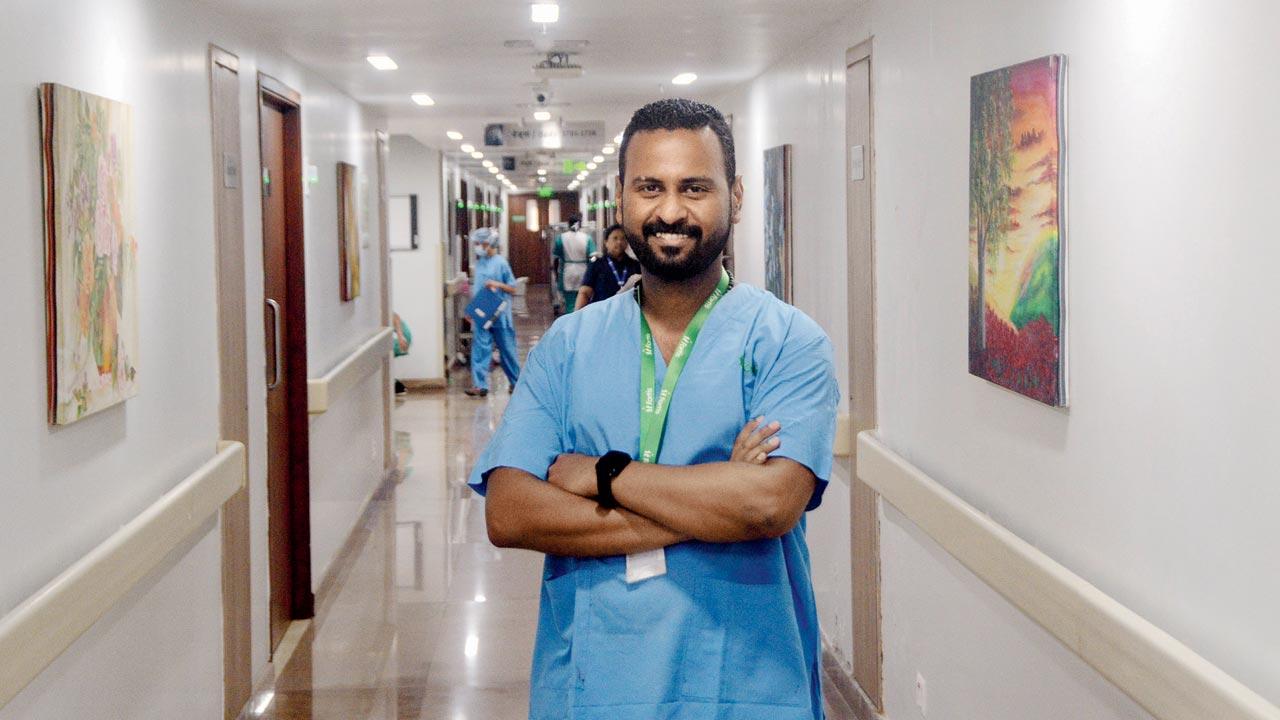 Mario Kolambel was the only boy in a batch that had 30 girls alongside him. Today, the Nursing Instructor cum Administrator at Fortis is seeing the gender gap closing up. Pic/Satej Shinde
Mario Kolambel was the only boy in a batch that had 30 girls alongside him. Today, the Nursing Instructor cum Administrator at Fortis is seeing the gender gap closing up. Pic/Satej Shinde
The reasons might be pragmatic, but the choice means that young Indian men must challenge gender stereotypes that have surrounded the profession for decades.
“Yes, I enrolled for a nursing course because I dreamt of going abroad. But more than that, I wanted to help people. My mother was a nurse; she retired as Senior Nursing Officer Hospital from Bandra’s Lilavati Hospital in 2020. I grew up with this ideal. I still see her help people around us with dressing wounds or administering injections. Ultimately, life took a turn and I decided to stay back in India,” says Kolambel, who, after teaching nursing for 10 years, joined Fortis a year ago.
His mother, Mary Kolambel, admits that she was not keen that her son follow in her path. “It is a female-dominated profession. I did not think men would do a woman’s job. But I couldn’t say no to him; I supported his decision. Today, I am very happy that I did not discourage him.”
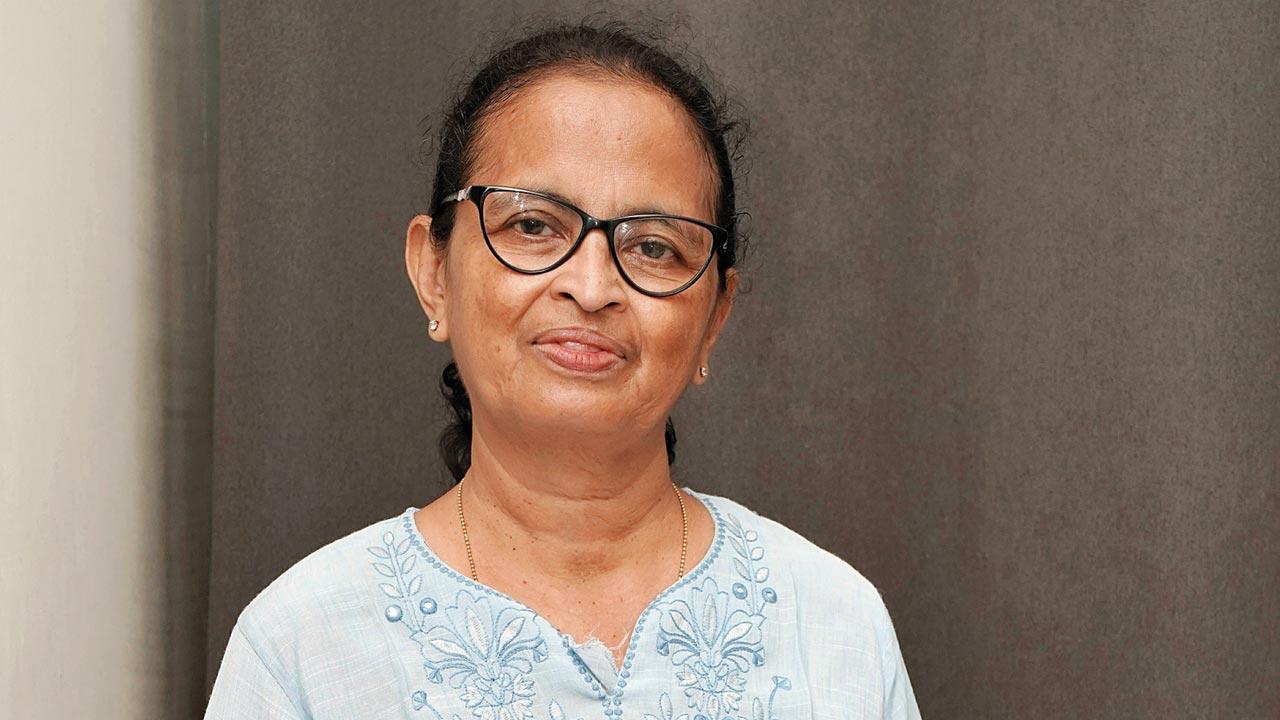 Mario’s mother Mary was initially unsure about her son’s decision but is now proud of the fact that she did not discourage him back then. Pic/Aishwarya Deodhar
Mario’s mother Mary was initially unsure about her son’s decision but is now proud of the fact that she did not discourage him back then. Pic/Aishwarya Deodhar
Bhavesh Khadye, 28, who works as male nurse at Peddar Road’s Jaslok Hospital, graduated from the ITM College of Nursing, Navi Mumbai, in 2019. His decision was spurred by a motivation similar to Kolambel; he says he had no qualms about being a ‘brother’ in a profession full of ‘sisters’—the colloquial term for nurses in India.
“I was part of the NSS [National Service Scheme, a public service programme] while in college, and after I finished my education, I wanted to continue to be of service to my country. I wanted to be a doctor but didn’t bag a high enough percentage. I was one of the 10 male students in a batch of 40. Initially, it was awkward and difficult, but when we got our postings and I started tending to patients, the sense of fulfilment came rushing back and I knew I had made the right choice,” he says.
While his parents were supportive of his decision, his friends, he says, did send the occasional jibe his way. “It didn’t matter,” he says. “None of them can do what I can. Patients, too, are surprised when they see us at work. Especially the elderly, who are not used to male nurses. They think we are ward boys. But once they experience our work, their doubts dissipate. We cannot blame them. It is we who have to change the mindset.”
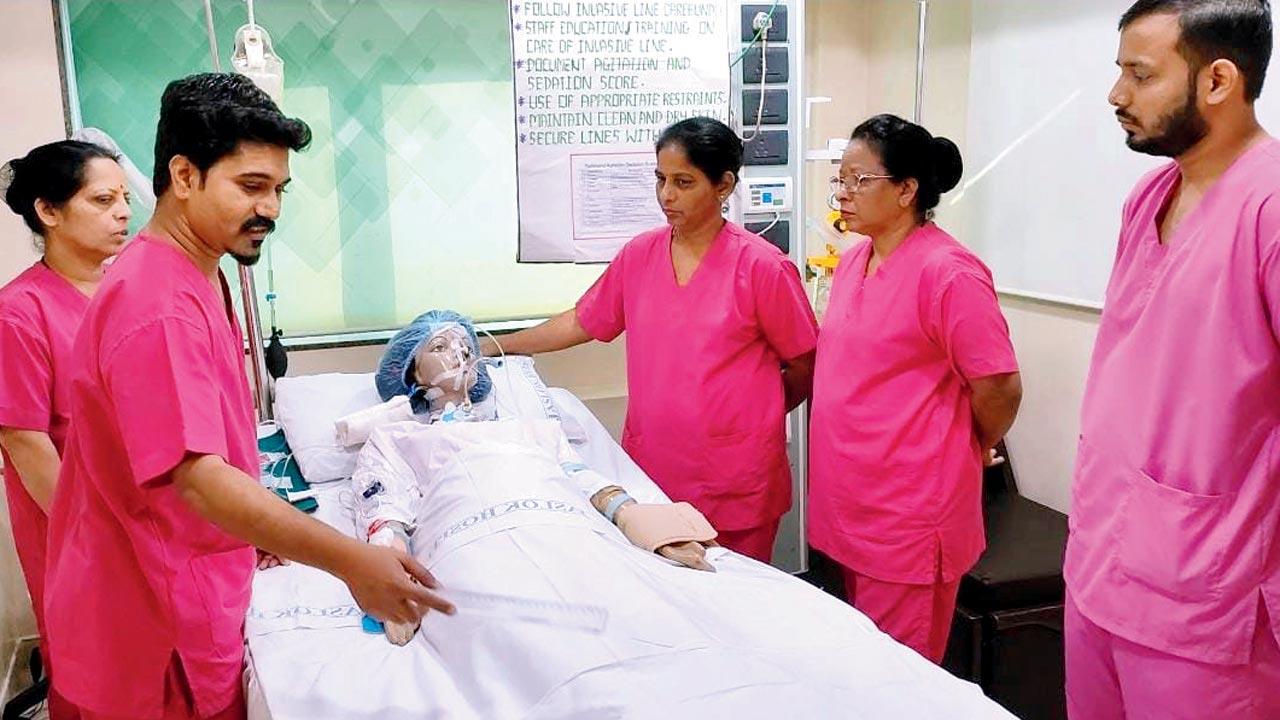 Bhavesh Khadye (left), a nurse at Jaslok Hospital, finds his job fulfilling and enriching, as he gets to give back to society, something he has always tried to do since his youth
Bhavesh Khadye (left), a nurse at Jaslok Hospital, finds his job fulfilling and enriching, as he gets to give back to society, something he has always tried to do since his youth
Kolambel says that opportunities are getting better within the country to. “I have seen nurses go from bedside work to the boardroom. They have on-ground experience and hence, are a strong voice in the hospital. They are consulted on important matters; their opinion counts. I am proof of this.”
Besides, adds Reddy, men are able to do the heavy lifting and useful in emergency situations and critical care. The industry is realising this and the demand for male nurses is increasing.
“Of course, there are concerns like sexual harassment, which the industry has taken note of over the years. Today, if a male nurse is tending to a female patient, we make sure there is at least one female nurse present. It puts both the nurse and the patient at ease,” she adds.
In a study published in the International Journal of Africa Nursing Sciences in 2022, a six-member team conducted a survey among 400 participants at a tertiary care hospital in Uttarakhand. The survey found that 67.5 per cent of participants were neutral towards male nurses, but among the remaining respondents, 19.3 per cent had a negative perception and only 13.2 per cent were positive. The literacy levels among the patients was seen to be a significant predictor of how they perceived male nurses, the study found, while also reporting that 58.7 per cent disagreed with the ‘feminine’ image of nursing as a profession and 89.5 per cent had no gender preference for nurses caring for them.
Kolambel puts it best: “Once a patient is in ER or at the operating table, it doesn’t matter whether the nurse tending to them is a man or woman.”
30 per cent
Number of seats occupied by male students who enrolled for the state government’s BSc Nursing course this year
12-30
Jump in number of male nursing student applications at Navi Mumbai’s DY Patil Nursing College in 5 years
Not a man’s world
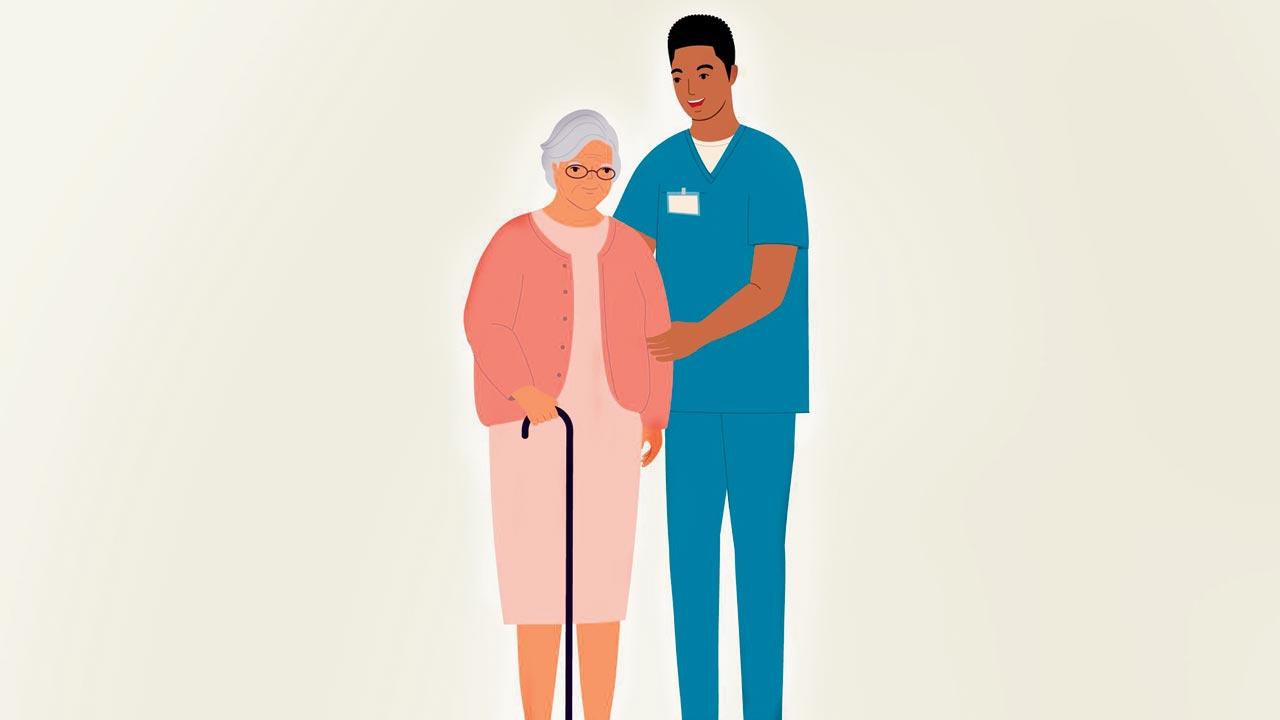
67.5 per cent
Neutral to male nurses
19.3 per cent
Negative perception
58.7 per cent
Disagreed with ‘feminine’ image of nursing
89.5 per cent
No gender preference for nurses
Courtesy: International Journal of Africa Nursing Sciences, 2022 survey of 400 at tertiary care hospital, Uttarakhand
 Subscribe today by clicking the link and stay updated with the latest news!" Click here!
Subscribe today by clicking the link and stay updated with the latest news!" Click here!







